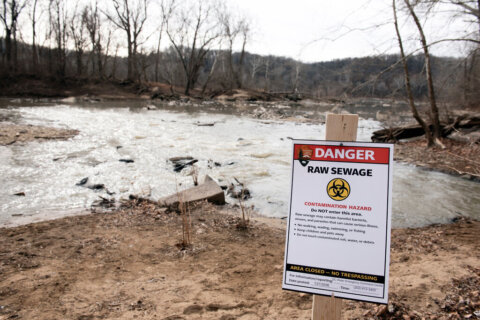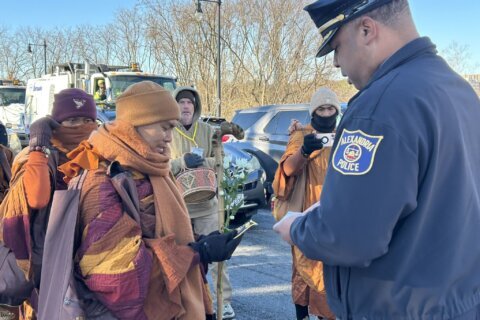The George Washington University in D.C. has suspended the Students for Justice in Palestine student group for 90 days, following a demonstration where students projected messages onto the side of the university’s library last month.
At Columbia University in New York, two student groups, Students for Justice in Palestine and the Jewish Voice for Peace, were suspended for reportedly violating campus policies. The suspension means they cannot hold events on campus or receive university funding.
The cases and others that are similar around the country have drawn attention to how colleges and universities handle the right to freedom of expression and student adherence to campus policies.
Lara Schwartz, who teaches at American University and the founding director of the Project on Civic Dialogue, said that in the context of public universities, “Speech, as opposed to conduct, is presumptively protected.”
There are some exceptions to the protections afforded to free speech, but they are narrow, Schwartz said. Exceptions are for “things like incitement or things like ‘true threat,’ also called intimidation.”
At private universities, “Campuses have the option to adopt a First Amendment-like protection for speech protest and dissent, and my university has, I’m happy to say,” Schwartz said.
But some universities have not.
Schwartz said universities often have codes of conduct, which can be “distinct from expression.” These would cover things, such as “not trespassing, not vandalizing, rules against harassing other students or certainly violence or attacking people,” she added.
Universities “can set neutral time, place and manner restrictions” connected to free speech, Schwartz said.
For example, a university could bar students from demonstrating inside dorms with a megaphone at 10 p.m., but if a college or university takes action based on the content of the speech in question, that can raise the potential for questions about free speech rights.
While schools are centers of learning and the exploration of ideas, including those that aren’t popular, Schwartz said there can be a lot of pressure on schools to censor or otherwise limit speech that’s deemed objectionable.
Schwartz said that the First Amendment “is hard,” and “hateful speech might very well be protected speech.”
In some protests, the use of the phrase “from the river to the sea” has roiled communities who see it as a hateful phrase calling for the genocide of Israeli citizens.
“You know historians and political scientists and people with knowledge of the Middle East can say better than I how to contextualize that statement and what it truly means,” Schwartz said. “But I don’t think you’re going to find a First Amendment lawyer who’s going to say that’s a true threat or harassment or incitement.
“It’s very hard to have protection for speech that is repulsive or painful or horrible to many members of the community,” Schwartz said.








